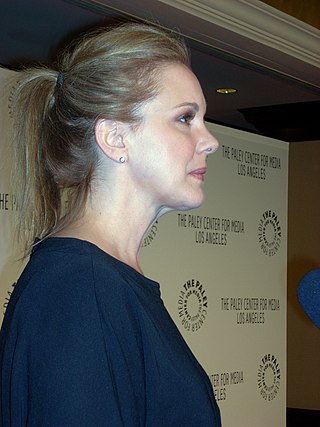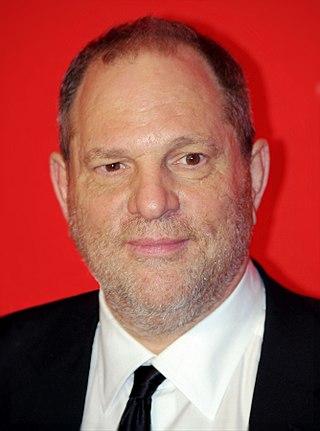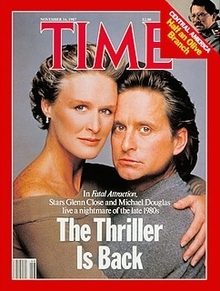
John Michael Crichton was an American author, screenwriter and filmmaker. His books have sold over 200 million copies worldwide, and over a dozen have been adapted into films. His literary works heavily feature technology and are usually within the science fiction, techno-thriller, and medical fiction genres. Crichton’s novels often explore human technological advancement and attempted dominance over nature, both with frequently catastrophic results; many of his works are cautionary tales, especially regarding themes of biotechnology. Several of his stories center specifically around themes of genetic modification, hybridization, paleontology and/or zoology. Many feature medical or scientific underpinnings, reflective of his own medical training and scientific background.

Telenor ASA is a Norwegian majority state-owned multinational telecommunications company headquartered at Fornebu in Bærum, close to Oslo. It is one of the world's largest mobile telecommunications companies with operations worldwide, but focused in Scandinavia and Asia. It has extensive broadband and TV distribution operations in four Nordic countries, and a 10-year-old research and business line for machine-to-machine technology. Telenor owns networks in 8 countries.

Michael Kirk Douglas is an American actor and film producer. He has received numerous accolades, including two Academy Awards, five Golden Globe Awards, a Primetime Emmy Award, the Cecil B. DeMille Award, and the AFI Life Achievement Award.

The Santa Clause is a 1994 American Christmas comedy film directed by John Pasquin and written by Leo Benvenuti and Steve Rudnick. The first installment in The Santa Clause franchise, it stars Tim Allen as Scott Calvin, an ordinary man who accidentally causes Santa Claus to fall from his roof to his supposed death on Christmas Eve. When he and his young son, Charlie, finish the late St. Nick's trip and deliveries, they go to the North Pole where Scott learns that he must become the new Santa and convince those he loves that he is indeed Santa Claus.

Demi Gene Moore is an American actress and producer. She first gained attention on daytime television, before breaking out as a film star in the 1980s. By the mid 1990s, she was the highest-paid actress at the time. She has earned several accolades throughout her career, including nominations for an Emmy Award, two Golden Globe Awards and a Screen Actors Guild Award.

Sleepless in Seattle is a 1993 American romantic comedy film directed by Nora Ephron, from a screenplay she wrote with David S. Ward and Jeff Arch. Starring Tom Hanks and Meg Ryan, the film follows a journalist (Ryan) who becomes enamored with a widowed architect (Hanks), when the latter's son calls in to a talk radio program requesting a new partner for his grieving father. In addition to Bill Pullman, Ross Malinger, and Rob Reiner, the film features an ensemble supporting cast also consisting of Rosie O'Donnell, Gaby Hoffmann, Victor Garber, Rita Wilson, Barbara Garrick, and Carey Lowell.

Sexual harassment is a type of harassment involving the use of explicit or implicit sexual overtones, including the unwelcome and inappropriate promises of rewards in exchange for sexual favors. Sexual harassment can be physical and/or a demand or request for sexual favors, making sexually coloured remarks, showing pornography, and any other unwelcome physical, verbal, or non-verbal conduct of a sexual nature. Sexual harassment includes a range of actions from verbal transgressions to sexual abuse or assault. Harassment can occur in many different social settings such as the workplace, the home, school, or religious institutions. Harassers or victims can be of any gender.

Elizabeth Perkins is an American actress. She is known for her roles in films including About Last Night (1986), From the Hip (1987), Big (1988), Enid Is Sleeping (1990), The Flintstones (1994), Moonlight and Valentino (1995), The Ring Two (2005) and Hop (2011). She is also well known for her role as Celia Hodes in the Showtime TV series Weeds, for which she received three Primetime Emmy nominations and two Golden Globe nominations.

Harvey Weinstein is an American former film producer and convicted sex offender. In 1979, Weinstein and his brother, Bob Weinstein, co-founded the entertainment company Miramax, which produced several successful independent films including Sex, Lies, and Videotape (1989); The Crying Game (1992); Pulp Fiction (1994); Heavenly Creatures (1994); Flirting with Disaster (1996); and Shakespeare in Love (1998). Weinstein won an Academy Award for producing Shakespeare in Love and also won seven Tony Awards for plays and musicals including The Producers, Billy Elliot the Musical, and August: Osage County. After leaving Miramax, Weinstein and his brother Bob founded The Weinstein Company (TWC), a mini-major film studio. He was co-chairman, alongside Bob, from 2005 to 2017.
CelcomDigi Berhad, formerly known as Digi.Com Berhad, is a communications conglomerate and mobile service provider in Malaysia. Axiata and Telenor hold equal ownership in CelcomDigi at 33.1% each. CelcomDigi is the largest wireless carrier in the Malaysia, with 20.3 million subscribers at the end of Q4 2022. The majority of the company's stake is owned by Malaysian billionaire, Tan Sri Vincent Tan.

The casting couch is a euphemism for the practice of soliciting sexual favors from a job applicant in exchange for employment in the entertainment industry, primarily acting roles. The practice is illegal in the United States. Predominantly male casting directors and film producers use the casting couch to extract sex from aspiring actors in Hollywood, Bollywood, Broadway, and other segments of the industry. The term casting couch originally referred to physical couches in the casting office, but is now a metonym for the phenomenon as a whole. Depictions of casting couch sexual encounters have also become a genre of pornography.

Coma is a 1978 American mystery thriller film based on the 1977 novel of the same name by Robin Cook. The film rights were acquired by director Michael Crichton,who also wrote the screenplay, and the movie was produced by Martin Erlichmann for Metro-Goldwyn-Mayer. The cast includes Geneviève Bujold, Michael Douglas, Elizabeth Ashley, Richard Widmark, and Rip Torn. Among the actors in smaller roles are Tom Selleck, Lois Chiles, and Ed Harris.

Disclosure is a novel by Michael Crichton, his ninth under his own name and nineteenth overall, and published in 1994. The novel is set at a fictional computer hardware manufacturing company. The plot concerns protagonist Tom Sanders and his struggle to prove that he was sexually harassed by his female employer.

Ross B. Levinsohn is an American media executive who has worked in media and technology. He is the former CEO of The Arena Group and Sports Illustrated, and has held senior roles at Yahoo, Fox Interactive and Tribune Publishing, including a brief tenure as publisher of the Los Angeles Times until it was sold in 2018. He became the CEO of Sports Illustrated in October 2019, and CEO of The Arena Group in August 2020. He was fired from these roles in December 2023.

The erotic thriller or sexual thriller is a film subgenre defined as a thriller with a thematic basis in illicit romance or sexual fantasy. Though exact definitions of the erotic thriller can vary, it is generally agreed "bodily danger and pleasure must remain in close proximity and equally important to the plot." Most erotic thrillers contain scenes of softcore sex and nudity, though the frequency and explicitness of those scenes can differ from film to film.
Non-binding arbitration is a type of arbitration in which the arbitrator makes a determination of the rights of the parties to the dispute, but this determination is not binding upon them, and no enforceable arbitration award is issued. The "award" is in effect an advisory opinion of the arbitrator's view of the respective merits of the parties cases. Non-binding arbitration is used in connection with attempts to reach a negotiated settlement. The role of an arbitrator in non-binding arbitration is, on the surface, similar to that of a mediator in a mediation. However, the principal distinction is that whereas a mediator will try to help the parties find a middle ground to compromise at, the arbitrator remains totally removed from the settlement process and will only give a determination of liability and, if appropriate, an indication of the quantum of damages payable.

Olugbenga Enitan Temitope Akinnagbe is an American actor and writer, best known for his roles as Chris Partlow on the HBO series The Wire and as Larry Brown on the HBO series The Deuce.

Axiata Group Berhad, is a Malaysian multinational telecommunications conglomerate with extensive operations in Asia.

Women in Malaysia receive support from the Malaysian government concerning their rights to advance, to make decisions, to health, education and social welfare, and to the removal of legal obstacles. The Malaysian government has ensured these factors through the establishment of Ministry of National Unity and Social Development in 1997. This was followed by the formation of the Women's Affairs Ministry in 2001 to recognise the roles and contributions of Malaysian women.

















